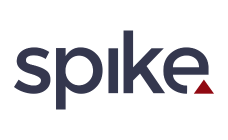Anticipate Consumer Preferences with AI Travel Marketing
For most people, AI in Travel Marketing has become synonymous with ChatGPT and Bard
…but that’s only part of the picture.
By harnessing its capabilities, travel specialists can anticipate customer preferences, make well-informed decisions, and enhance engagement on a scale once thought unimaginable.
Unimaginative AI in business and marketing
The EU definition of Artificial Intelligence is:
“Artificial Intelligence (AI) means software that…can, for a given set of human-defined objectives, generate outputs such as content, predictions, recommendations or decisions influencing the environments they interact with.”
It’s worth focussing on this for a minute.
It’s software, yes. But it is driven by human-defined objectives. And often, that is the weak link in the chain. Most businesses struggle with how to apply AI constructively. And most travel businesses seem to focus on AI as an itinerary generator or a new form of search and packaging.
Dull.
What’s more interesting in this definition are the outputs: content, predictions, recommendations and decisions.
We all understand content – generative AI excels at creating it. Articles, emails, websites can all be enhanced by using tools available in the open market. They’re not perfect, but they offer a great starting point. Can you gain a real competitive advantage from using AI like this?
Perhaps not. You might achieve some early mover advantages and efficiencies before your competition catches up. Eventually, everyone should, and will, be using these tools to create content and become more efficient. AI can be an excellent productivity tool.
AI in Travel Marketing: a treasure trove
For a specialist travel business, the other outputs – predictions, recommendations and decisions – become even more intriguing. Their commercial advantage lies in the fact that they can be based on unique insights unavailable to competitors.
All travel businesses sit atop a treasure trove they rarely utilise – the data they have on their customers and prospects, their bookings, profiles, interactions and geography. This is data your competition doesn’t have access to.
Even a few thousand records can help build AI models that are highly accurate, providing a genuine commercial advantage.
Manage Enquiries
Consider enquiries – which should you prioritise? Who requires a response within an hour and who can wait until tomorrow?
How many “zombie” enquiries do you receive – those that drain your team’s energy and consume valuable time that could be spent on enquiries more likely to convert?
Most businesses use basic lead scoring, but AI in travel marketing can offer more precise insights faster. It can help you focus on promising leads and automate the management of the less promising ones, ensuring everyone gets a good experience without side-lining your better prospects.
Customer Service & Predicting Customer Behaviour
Most specialist travel businesses pride themselves on exceptional personal service. A whopping 97% of respondents to the AITO Travel Insights Report in 2022 cited high levels of customer service as a primary reason they book with a specialist travel company. 96% mentioned expertise and advice as equally vital.
Can AI replace this? No, but it can facilitate it. Specialist travel businesses excel once a customer expresses interest. But what about past customers and prospects who haven’t re-engaged?
Here’s where AI comes in – understanding and predicting their interests, examining their behaviour and demographics, and forecasting their next moves. By developing a contact strategy that nudges them towards re-engagement, they can once again experience the exceptional service and expertise offered by specialist travel businesses.
Imagine dedicating 30 minutes of your time to every past customer and prospect, understanding them, considering their past purchases, and introducing them to new destinations and experiences. The obstacle is time. Engaging 500 customers would take 250 hours or 31 eight-hour days. Factor in contacting them and scheduling, and the time commitment multiplies. For 5,000 customers, it’s closer to a year. It’s an overwhelming task!
AI can streamline this process. It offers insights akin to face-to-face interactions but on a larger scale and at a faster pace. Moreover, it’s accessible to SME travel businesses, not just the giants with vast resources and technological investments.
For specialist travel businesses, AI provides an unparalleled opportunity.
If you’re looking for a competitive edge and want to offer an unmatched service in a constantly evolving market, let AI be your guide.

AI in Marketing: Where do we stand?
Artificial Intelligence is dramatically reshaping industries, and its impact on marketing strategies is (and will continue to be) profound. For […]
Read more.
Sports Sponsorship and Marketing: What Does 2024 Hold?
2024 is well underway, and it looks like it is going to be an exciting year in the world of […]
Read more.
